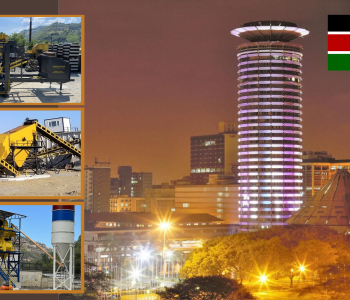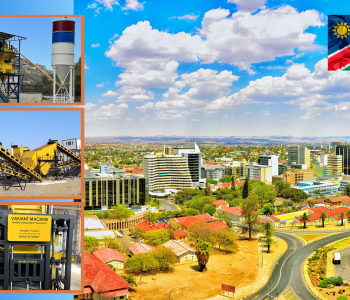Exploring Concrete Block Variants: Types, Uses, and Benefits
Concrete blocks are fundamental to modern construction, offering a range of benefits including durability, versatility, and cost-effectiveness. With advancements in technology, concrete block machines, concrete brick machines, and concrete paver machines have revolutionized the production of these essential materials. This article delves into various concrete block variants, their applications, and the advantages they offer, incorporating insights on how different machines contribute to their production.
Types of Concrete Blocks
- Standard Concrete Blocks
Description and Characteristics: Standard concrete blocks, or concrete masonry units (CMUs), are among the most commonly used types in construction. Produced by concrete block machines, these blocks are made from a blend of cement, water, and aggregates like sand or gravel. They typically come in sizes such as 20x20x40 cantimeters.
Applications: Standard concrete blocks are suitable for load-bearing walls, foundations, and exterior walls in both residential and commercial buildings.
Benefits: These blocks offer excellent structural integrity, fire resistance, and thermal mass, which helps in maintaining stable indoor temperatures. Concrete block machines ensure consistent quality and uniformity in these blocks, making them a reliable choice for many construction projects.
- Hollow Concrete Blocks
Description and Characteristics: Hollow concrete blocks feature internal voids that reduce weight and enhance insulation properties. Created using advanced concrete block machines, these blocks come in various core configurations and sizes.
Applications: Ideal for non-load-bearing walls, partitions, and interior walls, hollow blocks are particularly useful in residential construction where insulation is important.
Benefits: The hollow cores improve thermal and acoustic insulation compared to solid blocks. They are lighter, which can lower transportation and handling costs. Concrete brick machines, used to produce these blocks, help maintain high-quality standards and precise dimensions.
- Solid Concrete Blocks
Description and Characteristics: Solid concrete blocks are denser and heavier, with no voids, offering superior load-bearing capabilities. They are made using concrete block machines and are commonly used in critical structural applications.
Applications: These blocks are ideal for load-bearing walls, foundations, and retaining walls in both industrial and residential settings.
Benefits: Solid concrete blocks provide excellent compressive strength, durability, and fire resistance. Their robust nature makes them suitable for heavy-duty construction. Concrete block machines ensure the production of these high-strength blocks with consistent quality.
- Interlocking Concrete Blocks
Description and Characteristics: Interlocking concrete blocks are designed to fit together without the need for mortar, thanks to their interlocking edges or grooves. Produced with specialized concrete block machines, these blocks are ideal for paving and landscaping applications.
Applications: Used for creating retaining walls, decorative patterns, and durable paving surfaces, interlocking blocks are popular for both residential and commercial outdoor projects.
Benefits: The interlocking design simplifies installation, reduces mortar use, and offers flexibility in design. Concrete paver machines, which produce these blocks, contribute to faster and more efficient construction processes, while also making it easy to replace individual blocks if needed.
- Paving Stones
Description and Characteristics: Concrete paving stones, or pavers, are specifically designed for outdoor surfaces such as driveways, walkways, and patios. Created using concrete paver machines, these stones come in various shapes, sizes, and colors.
Applications: Ideal for high-traffic outdoor areas, paving stones provide both functional and aesthetic benefits. They are used in residential driveways, commercial walkways, and public spaces.
Benefits: Paving stones offer customization in design and color, durability, and resistance to heavy loads. Concrete paver machines ensure that these stones are produced with precise dimensions and high quality, making them suitable for a range of applications.
Choosing the Right Concrete Block Variant
Considerations for Selection: Selecting the right concrete block variant involves evaluating the specific needs of the project, including structural requirements, insulation needs, and aesthetic preferences. Concrete block machines, concrete brick machines, and concrete paver machines play crucial roles in producing blocks that meet these requirements.
Environmental and Cost Factors: Consider the environmental impact and cost-efficiency of each type of block. For example, hollow blocks can provide better insulation, potentially lowering long-term energy costs. The choice of block can also influence overall construction expenses, depending on material and labor requirements.
Conclusion
Concrete blocks, produced using concrete block machines, concrete brick machines, and concrete paver machines, come in various forms, each with unique characteristics and benefits. Understanding the different types—standard, hollow, solid, interlocking, and paving stones—helps in selecting the most suitable option for a construction project. Whether for structural, aesthetic, or functional purposes, the appropriate concrete block variant, along with the right production equipment, can enhance the durability, efficiency, and success of building and infrastructure projects.

